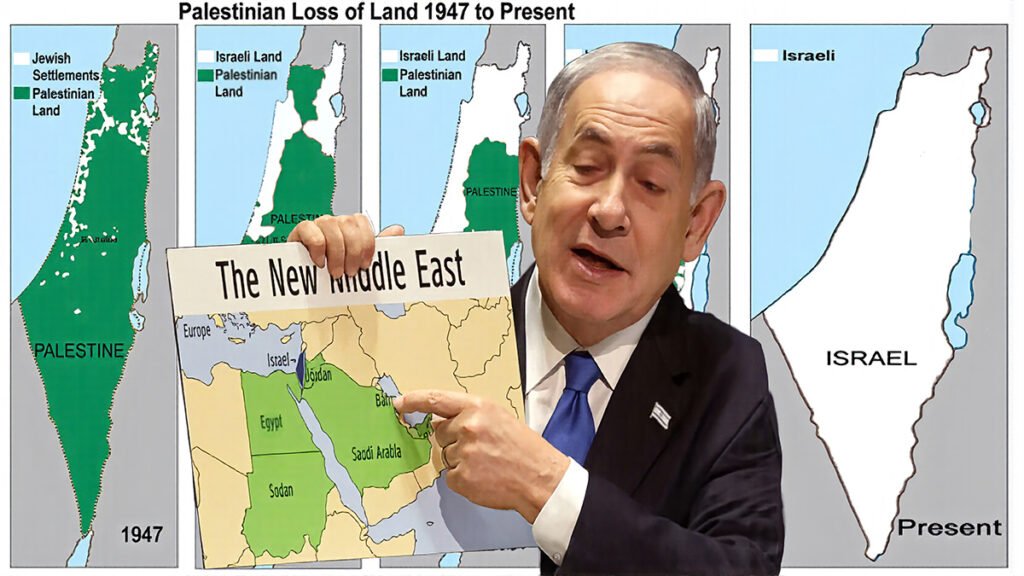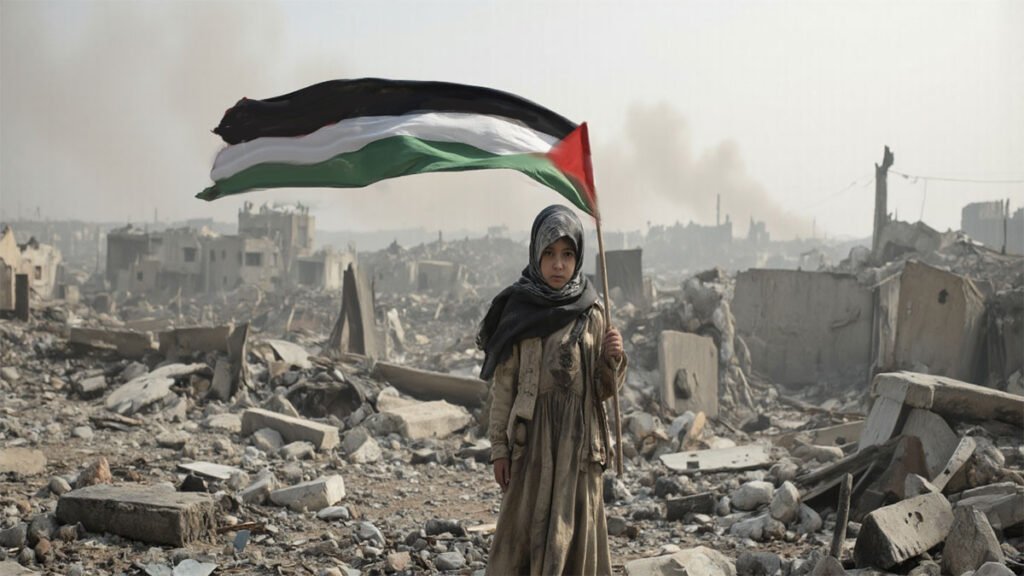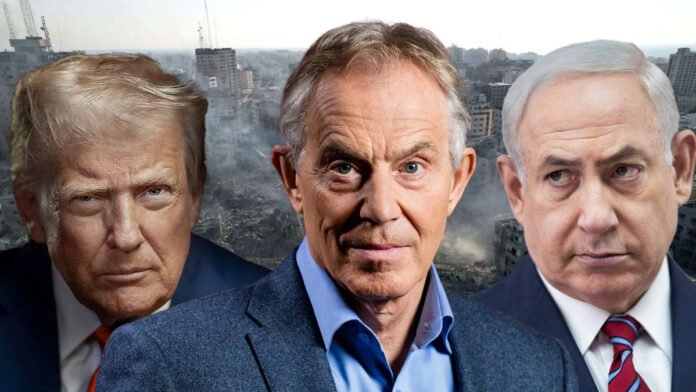Hamas has responded to US ceasefire proposals by accepting key elements while requesting further negotiations on several critical points, hours before President Donald Trump’s Sunday deadline.
In a statement, the movement agreed “to release all Israeli prisoners, both living and dead, according to the exchange formula contained in President Trump’s proposal”, contingent on meeting field conditions for the exchanges. However, Hamas indicated that issues concerning Gaza’s future governance and Palestinian rights require continued discussion “within a national framework.”
The response follows Trump’s ultimatum delivered Friday via Truth Social, threatening “all hell, like no one has ever seen before” against Hamas if the agreement wasn’t reached. “THERE WILL BE PEACE IN THE MIDDLE EAST ONE WAY OR THE OTHER,” the president wrote, setting an 18:00 Washington time Sunday deadline.
Trump’s 20-point plan, announced Monday alongside Israeli Prime Minister Benjamin Netanyahu, proposes an immediate ceasefire and the release of 20 living Israeli hostages, plus remains of deceased captives, within 72 hours, in exchange for hundreds of detained Palestinians. Of 48 hostages believed held in Gaza, only 20 are thought alive.
Hamas also confirmed its agreement to “hand over the administration of the Gaza Strip to a Palestinian body of independents (technocrats), based on Palestinian national consensus and Arab and Islamic support.” The plan envisions governance by an “apolitical Palestinian committee” overseen by an international “Board of Peace” chaired by Trump.
The White House has unveiled its peace plan for Gaza, and in a decision that defies both logic and decency, it includes a prominent role for Tony Blair, the former British Prime Minister whose Middle East legacy consists primarily of rubble, displacement, and hundreds of thousands of dead.
The 20-point plan proposes placing Gaza under transitional governance led by Trump and others, including Blair. The US President singled out the former PM for praise, calling him “a good man, very good man” and confirming his place on what Trump dubbed the “Board of Peace.”
White House Press Secretary Karoline Leavitt warned Friday that rejection would bring “very grave” consequences for Hamas. “The entire world should hear the president of the United States loud and clear,” she said, describing potential outcomes as “very tragic.”
Netanyahu complicated matters by immediately contradicting the plan’s implicit two-state framework, stating in a video: “It’s not written in the agreement. We said we would strongly oppose a Palestinian state.”
The initiative has received mixed international response. European and Middle Eastern leaders largely welcomed the proposal, with the Palestinian Authority calling Trump’s efforts “sincere and determined.” Pakistan initially voiced support but later distanced itself, saying announced points conflicted with a Muslim-majority countries’ draft.
Trump and Netanyahu have both pledged US backing for Israel to “finish the job of destroying the threat of Hamas” if the plan is rejected or not implemented.

The push for peace comes as Israel prosecutes a major offensive in Gaza City. Israel’s defence minister this week said forces were “tightening the siege” around the city, claiming the operation aims to secure remaining hostages’ release. Hundreds of thousands of residents have been ordered to evacuate to al-Mawasi’s designated “humanitarian area,” though many remain.
Israel’s defence minister warned those staying would be considered “terrorists and supporters of terror.” James Elder, spokesman for UN children’s agency Unicef, called the safe zone concept “farcical,” noting that “bombs are dropped from the sky with chilling predictability” and schools serving as shelters are “regularly reduced to rubble.”
The Israeli military campaign began following Hamas’s 7 October 2023 attack on southern Israel, which killed approximately 1,200 people and resulted in 251 hostages. Gaza’s Hamas-run health ministry reports at least 66,288 Palestinian deaths since then, with 63 killed in the 24 hours before Friday midday alone.
Gaza has become a charnel house where peace represents not just political resolution but desperate humanitarian necessity, the only blessing that might end the suffering of those trapped in ruins.
A Final Word:

We all hope for peace… desperately, urgently, against all evidence. But gut instinct, informed by twenty months of watching patterns repeat, suggests this may be public theatre staged for an audience that demands the appearance of diplomacy before accepting its failure.
This feels less like genuine opportunity than final opportunity deliberately structured to collapse. The contradictions are too glaring, the positions too entrenched, the timeline too compressed. Netanyahu’s immediate disavowal of Palestinian statehood, the implicit foundation of any lasting settlement, reveals how seriously Israel’s government takes this framework.
When the talks fail, and the evidence suggests they are designed to fail, the narrative will be clear: Hamas rejected peace, chose violence, left Israel no choice. The documentation will be thorough, the justification pre-packaged, the international response predictable. Some will express regret while others celebrate, but the outcome remains constant: military operations continue with renewed legitimacy.
This is not pessimism but pattern recognition. Gaza has become a charnel house not through tragic miscalculation but through deliberate policy pursued despite international law, despite humanitarian catastrophe, despite every moral framework we claim to uphold. Another round of failed negotiations changes nothing about the trajectory, only provides the diplomatic alibi for what comes next.
No matter where fault lies in this round’s collapse, and fault will be assigned with surgical precision to serve predetermined conclusions the result remains foreordained. Israel will continue operations until Gaza’s destruction is complete, its population displaced or decimated, its future as anything resembling an autonomous entity eliminated.
This latest peace plan represents not breakthrough but epilogue, the final diplomatic formality before the curtain falls on what remains of Palestinian Gaza. History will record that peace was offered, that opportunities existed, that blame was distributed. But history will also record what happened regardless of those offerings, those opportunities, that blame.
One still hopes. But hope untethered from reality becomes delusion, and we owe Gaza’s suffering population more than comfortable delusions. They deserve acknowledgment of the truth we all see but few will speak: this negotiation is prologue to conclusion already written.
Support Independent Journalism Today
Our unwavering dedication is to provide you with unbiased news, diverse perspectives, and insightful opinions. We're on a mission to ensure that those in positions of power are held accountable for their actions, but we can't do it alone. Labour Heartlands is primarily funded by me, Paul Knaggs, and by the generous contributions of readers like you. Your donations keep us going and help us uphold the principles of independent journalism. Join us in our quest for truth, transparency, and accountability – donate today and be a part of our mission!
Like everyone else, we're facing challenges, and we need your help to stay online and continue providing crucial journalism. Every contribution, no matter how small, goes a long way in helping us thrive. By becoming one of our donors, you become a vital part of our mission to uncover the truth and uphold the values of democracy.
While we maintain our independence from political affiliations, we stand united against corruption, injustice, and the erosion of free speech, truth, and democracy. We believe in the power of accurate information in a democracy, and we consider facts non-negotiable.
Your support, no matter the amount, can make a significant impact. Together, we can make a difference and continue our journey toward a more informed and just society.
Thank you for supporting Labour Heartlands









